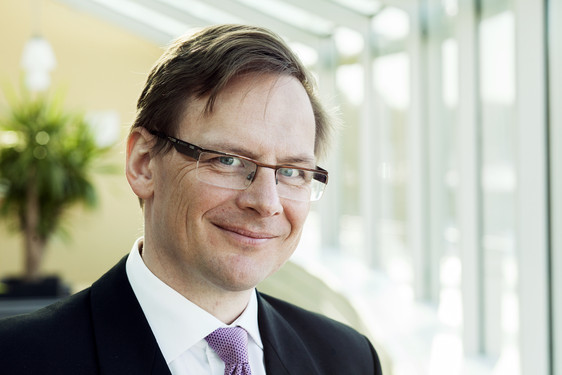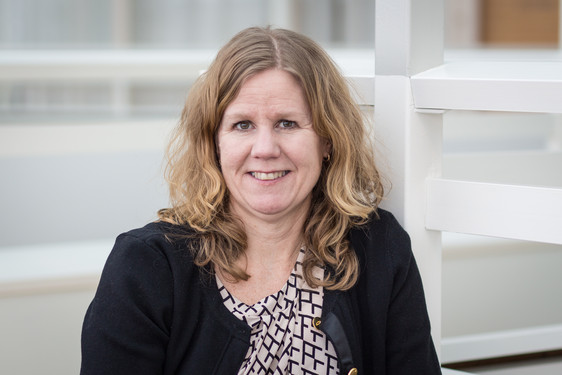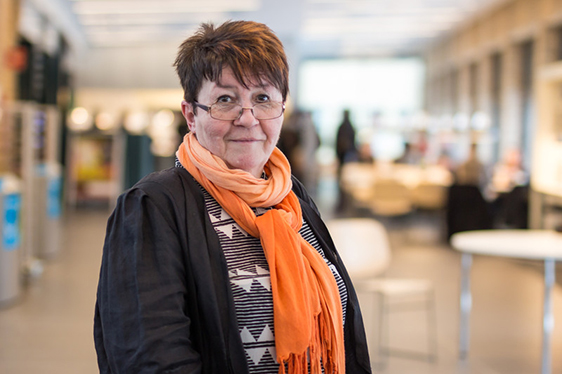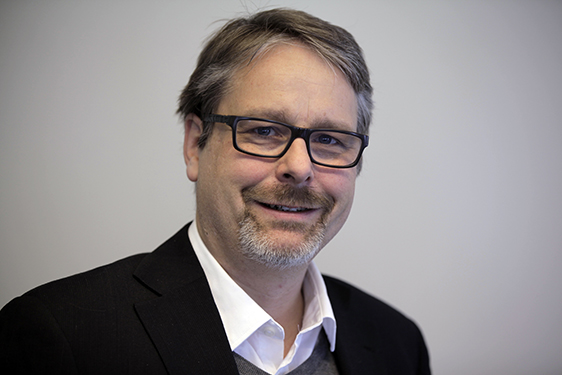NEWS Fast-track, bridging programmes, trainee programmes and work placements, proficiency and aptitude tests, networks and seminars – several activities are ready to be started or are already at full speed for newly arrived academics to find a way into Umeå University and the Swedish society.

In 2015, as many as 160,000 people sought asylum in Sweden on the run from war and conflicts. The number was twice as high as in 2014. About 25 per cent of the newly arrived individuals have post-secondary education of at least two years, mostly in business administration, commerce and logistics, technology and industry, health care and teaching. Swedish higher education institutions, among which Umeå University is one party, are now mobilising to act efficiently and utilise the academic competences.
“Umeå University has, just like all parts of the Swedish society, a responsibility to help in the current situation. What we have to offer is mainly of such character that we can greatly benefit from,” says Pro-Vice-Chancellor Anders Fällström.
Immigrant’s education and competence is highly priorities at the moment, which was also evident at a conference in February organised by the national network Include and the theme of the conference was “Education on the run – the responsibilities of the higher educational institutions”. Anders Fällström participated:
“Just like most other Swedish universities, Umeå University is currently in an inventory stage of the process where we are collecting and coordinating all the planned and ongoing activities. The issue is certainly of imminent importance both within research and education.”

Planned or possible efforts for Umeå University involve everything from seminars and study visits to an escalation in commitments for scholars at risk internationally. First and foremost, however, the key point is on safeguarding newly arrived individual’s occupational skills by validating foreign degrees, transferring credits to Swedish Higher Education Diplomas, and if necessary, on bridging programmes for graduates with foreign qualifications.
“Above all, we can collaborate with other authorities, especially the municipality and the Arbetsförmedlingen (the Swedish Public Employment Service), regarding people with foreign qualifications. In that area, we can contribute with various parts; Umeå University can for instance offer bridging programmes. If we succeed, it is mostly beneficial for the individual, but also for Umeå University and the entire Swedish society,” says Anders Fällström.
Umeå University is also involved in a newly-started Vinnova funded project with the objective to draw up a model to quickly provide newly arrived academics with a Swedish degree. The idea is that the new route to a Swedish Higher Education Diploma should consist of both credit transfers and subject-specific courses in the respective Swedish education.
“At present, we are fairly bad at welcoming newly arrived academics to Sweden. It must become easier for these individuals to quickly find employment. In this model, some take exams on certain courses and other credits are simply transferred. The end result is a Swedish degree from one of the universities, which is sadly of higher value in the present-day labour market,” continues Anders Fällström.
Umeå University has already established collaborations with Arbetsförmedlingen and Folkuniversitetet with the project Korta vägen. In the 26 week long education, courses in the Swedish language, social sciences, Swedish working life, IT skills and workplace training is included. The job market programme (Sw. Arbetsmarknadsutbildningen) – which is nowadays available in both Umeå and Skellefteå – also contains mapping and assessment of academic qualifications and career counselling.

Malin Larsson at the Planning Office has been appointed coordinator of the University initiatives for newly arrived academics. She is in charge of making an inventory of the projects and initiatives that have already been initiated at the University, as well as keep track of the needs and input that reaches the University from external parties.
“As the current situation stands, new things pop up nearly every week from governmental departments, authorities and organisations.”
For instance, Umeå University has answered a request from the National Board of Health and Welfare (Sw. Socialstyrelsen) on setting up two courses on Swedish law – a fully web-based distance education with some meetings in Umeå. The University has also suggested proficiency and aptitude tests for dieticians, psychologists and biomedical analysts.

So far, only one such contract education is offered at Umeå University: the one for foreign teachers, in Swedish shortened ULV – Kompletterande utbildning för utländska lärare, which is a distance education at half speed that has been offered since 2007. Since February, Umeå University is also one of six universities in the country who has been commissioned by the Government to offer a fast-track programme (Sw. snabbspår) for teachers and pre-school teachers, which means an even quicker way to establish educated and newly arrived teachers in schools and pre-schools through work practice and employment.
“The current Government initiative is a welcome step in the right direction for newly arrived foreign teachers to, at an early stage, get the information needed and a possible route towards establishing themselves in the Swedish school system,” says Irene Sedlacek, the Umeå University representative in the national board of ULV.

Many initiatives have been started at Umeå University. One that has already started is an open series of seminars on widening participation and internationalisation on home ground. The series was started in November 2015 when Carlos Rojas who founded Gringo and Miklo held a lecture on how refugees see their life in Sweden today. The series has also promoted the Swedish network Include. At the end of February, Greg Neely at the International Office also presented the international network Scholars at Risk and Umeå University’s approach on committing oneself to defending human rights for researchers around the globe.
“The University has paid the membership fees to Scholars at Risk and is now preparing to commit in various ways within the network in everything from seminars and campaign to act as host for scholars at risk,” says Greg Neely.
Offering trainee programmes and placements is another example of possible initiatives:
“We believe that work placements can be of great use in our own work within administration, education and research. Good examples to get inspired by can be found at the University of Gothenburg for instance,” says Anders Fällström.
According to Malin Larsson, the fund giver Mistra has entered a request on work placements in funded research projects. Similar initiatives can be on the rise from other fund givers.
“Plans to collaborate with Arbetsförmedlingen are also underway regarding work placements for establishing immigrants,” concludes Malin Larsson.
Text: Jonas Lidström and Camilla Bergvall
Translation: Anna Lawrence
Main photo: Ggia. Wikimedia Commons.
Editor: Anna Lawrence